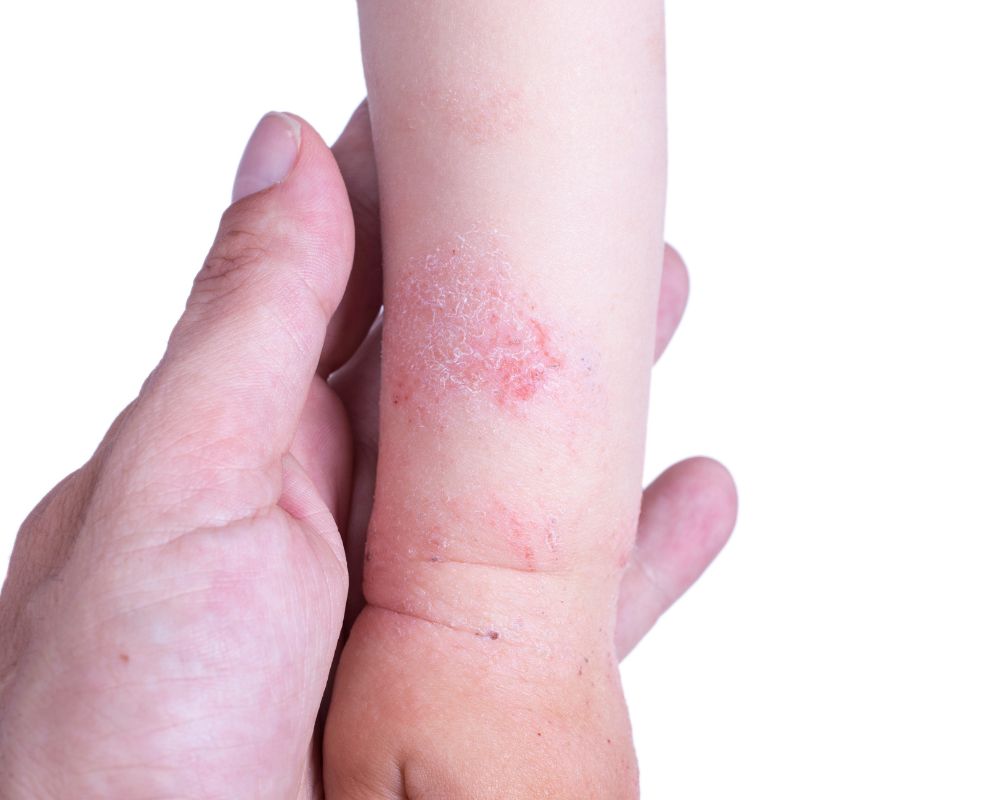
Eczema, or atopic dermatitis as it is also known, is an inflammatory skin disease that affects between 5 and 30 percent of the global pediatric population. It also affects around 1-10 percent of adults around the world.
Atopic eczema often develops in babies (before the age of one) and while the condition often clears up in some children, for others it can be a long-term condition. Babies with eczema will have dry skin that is itchy and sensitive. This is because the condition affects the skin’s ability to retain moisture.
As you might expect, eczema is uncomfortable for babies. In some cases, it can be quite painful, especially when blisters develop. Moreover, according to the National Eczema Association, eczema can weaken the immune system and cause more severe allergies.
If your child is suffering with eczema, you will obviously want to do everything you can to help. The following then are some tips that can help to make your baby more comfortable.
Treatments for Baby Eczema
If your baby’s eczema is mild, there are a number of at-home treatments you can try. For example, while you might think that daily bathing would make your baby’s skin drier, according to the Mayo Clinic daily bathing is one of the best things you can do for the child. However, it is important that you give your baby a short bath of no more than fifteen minutes and to only use a mild soap. You can find fragrance-free cleansers for sensitive skin at your local drug store. Some people add oatmeal to a lukewarm bath to sooth itchy skin.
When drying your baby’s skin, make sure to pat it dry rather than rubbing as rubbing can make the condition worse. Then apply a moisturizing lotion or an emollient such as petroleum jelly. Petroleum jelly can also be used for diaper changes as this will help to prevent rashes.
If your baby’s eczema is severe, your pediatrician may prescribe an antihistamine or a topical corticosteroid.
Babies with eczema often scratch at their itchy skin, which can make it worse. Baby scratching can be particularly problematic at night, but some parents have found that using CozeeCoo (https://www.cozeecoo.com/) eczema sleeves can really help. This wearable sleep swaddle keeps baby’s arms away from the face and makes for a more comfortable sleep.
Identifying Triggers
While your baby may have developed atopic eczema because of her genes, there are certain triggers that make the condition worse. Identifying thee can help to prevent flareups. Often, heat and humidity can make skin drier and itchier, so it is important to avoid overheating your baby with lots of blankets.
When you bathe your baby, the water should be lukewarm, and you should only wash her with a mild, fragrance-free soap. Use a soft sponge to wash her bottom and under her arms and neck.
When washing your baby’s clothing and bed sheets, make sure to only use a mild detergent as harsh chemicals in laundry detergents and fabric softeners can irritate the skin.
Dress your child in loose clothing made from cotton as this allows the skin to breathe and reduces the possibility of irritation.
Conclusion
Eczema is quite common in children, with between five and 30 percent of kids affected worldwide. Eczema is uncomfortable for babies when mild but when severe it can be very sore. There are things you can do to help your baby, such as eliminating triggers and using mild cleansers and moisturizers. To help your baby sleep at night, you can use a sleep swaddle to prevent scratching. However, if the condition does not improve with at-home treatments, it is best to speak to your pediatrician.
